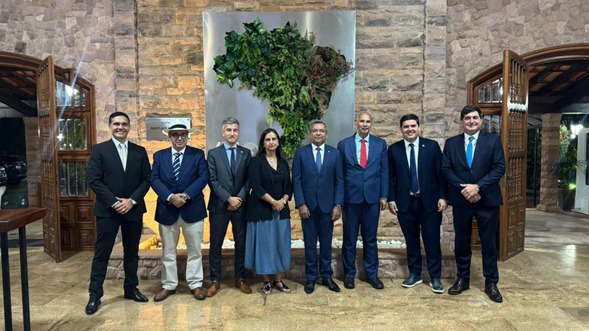The alliance was created under an IICA program financed by Europe aimed at strengthening the food security of small-scale producers in Central America.

San Jose, Costa Rica, July 17, 2014 (IICA). Four of Costa Rica’s tomato-producing regions have created a consortium to promote technological innovations designed to improve competitiveness and value added throughout the tomato chain.
Based on the concept of local consortiums for agricultural research and innovation (known by their Spanish acronym, CLIITA) the alliance was set up under the Regional Program for Research and Innovation in Agricultural Value Chains (PRIICA), which is being implemented by the Inter-American Institute for Cooperation on Agriculture (IICA) with the collaboration of the National Institute for Agricultural Technology Innovation and Transfer (INTA).
At an activity held at the Technological Institute of Costa Rica (TEC), in Cartago, at the end of June, official agreement was reached on the formation of the alliance and the adoption of a plan to provide follow-up to and support 12 research protocols and the validation of tomato cultivars.
During the activity, the participants also presented technology generation and validation projects, agreed on the contribution that each member of the consortium would make for the benefit of the other producers, and discussed the strategic plan of the Program for Technology Research and Transfer in Tomatoes (PITTA), prepared by the TEC’s Agribusiness School.
CLIITA is composed of tomato producers based in the Central-Pacific, Central-Western, Eastern and Southern regions. Some of the alliance’s member organizations are the Unión Nacional de Pequeños y Medianos Productores Agropecuarios (UPANACIONAL), the Asociación de Productores de Cedral de Esparza, la Asociación de Productores de Trojas de Valverde Vega, the Asociación de Pequeños y Medianos Agricultores del Tejar de Cartago (AGRITEC) and the cantonal agricultural centers of Oreamuno and El Guarco del Cartago.
Other members include the Ministry of Agriculture and Livestock (MAG), the IICA Office in Costa Rica, the PRIICA Coordinating Unit, the INTA, the PITTA, the National Production Council (CNP), the TEC, the University of Costa Rica (UCR) and the National University (UNA).
The consortium’s next actions will be to consolidate its Plan for Strategic Innovation (PEI), seek more partners, implement the plan to promote knowledge management and conduct field research.
PRIICA is an IICA program financed by the European Union designed to strengthen the food and nutrition security of producers by means of public-private sector partnerships, knowledge management, and research and innovation in cassava, potatoes, tomatoes and avocadoes in Central America.
For more information, contact:
jonathan.castro@iica.int
miguel.altamirano@iica.int











